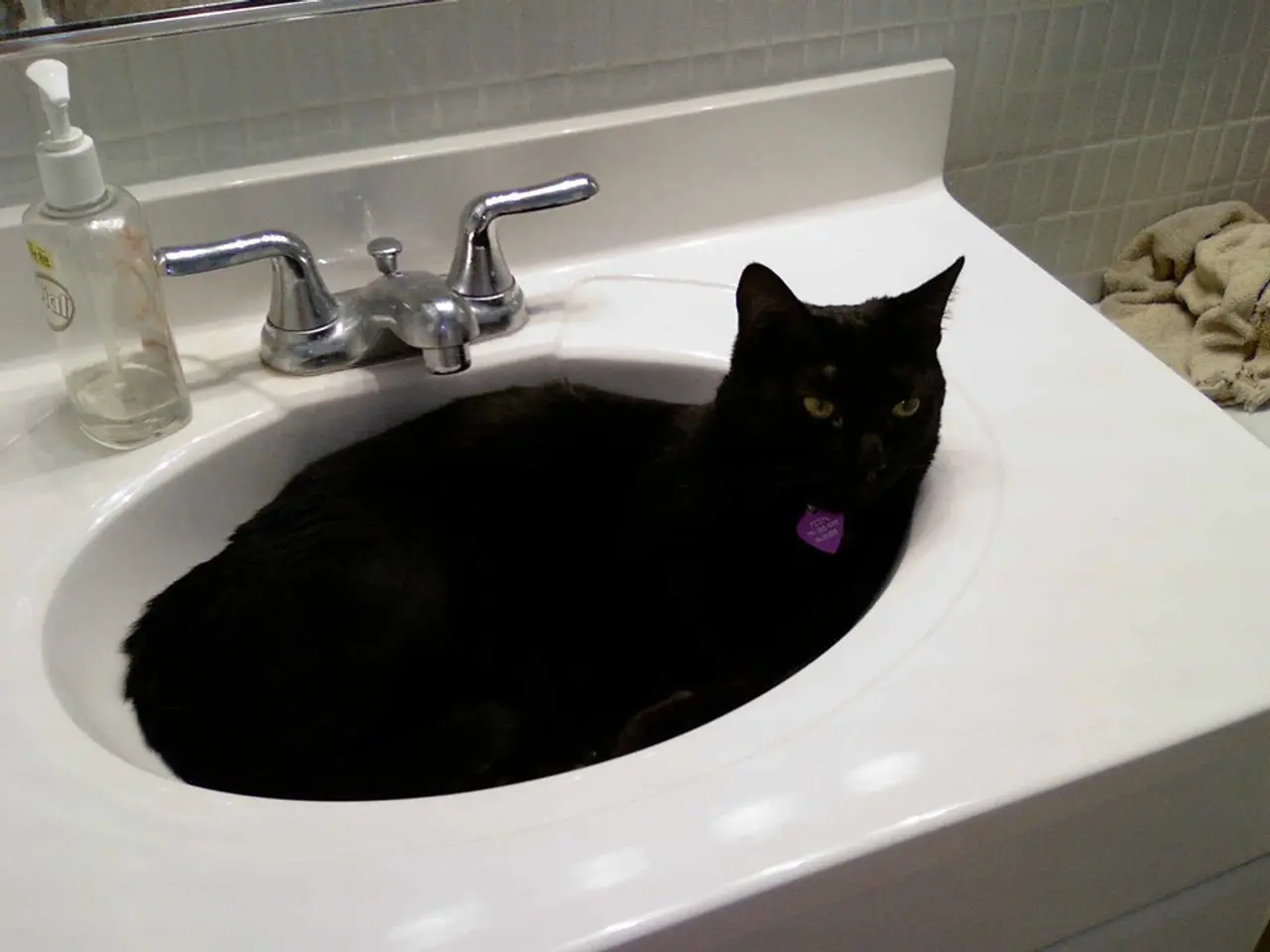Pregnant Women and Cat Litter: A Potential Danger to Consider
Pregnancy can be a time of joy and excitement, but it also comes with a heightened awareness of potential risks to the unborn child. One such risk is toxoplasmosis, a parasitic infection caused by the Toxoplasma gondii microbe. Here's a comprehensive guide to help pregnant women understand the risks and precautions associated with toxoplasmosis.
Toxoplasmosis is primarily transmitted through the oral-fecal route, and cats are the most common carriers. However, it's important to note that smelling cat litter does not pose a risk of infection.
To safeguard against toxoplasmosis infection, pregnant women are advised to follow certain rules. One key precaution is to avoid cleaning the cat litter box if possible. Ideally, another household member should handle this task during pregnancy. If cleaning is unavoidable, wearing rubber gloves and washing hands thoroughly afterward is essential. Wearing a mask is generally not necessary.
Another essential precaution is to remove cat feces daily, as the parasite's oocysts require 1–5 days to become infectious after being shed. This minimizes the risk of exposure.
To further reduce the risk, it's recommended to keep cats indoors and not feed them raw or undercooked meat. Indoor cats are less likely to become carriers of the parasite compared to outdoor cats.
Additional general hygiene measures include washing hands thoroughly after gardening or handling soil, cooking meat thoroughly, washing fruits and vegetables well, and avoiding unpasteurized dairy products.
Direct contact with cats, petting, or cuddling them is not considered a significant risk for toxoplasmosis transmission. However, pregnant women should take precautions to minimize risks, such as avoiding handling cat litter when possible and wearing gloves and washing hands thoroughly when cleaning.
Pregnant women can also contract toxoplasmosis from contaminated food, such as eating raw or undercooked meat, or cured meats that haven't been cooked. Handling raw meat and not washing hands afterwards, and coming into contact with pregnant sheep or lambs, are other potential sources of infection.
If a pregnant woman suspects she has encountered infected material, it's best to contact her doctor or midwife for advice. If a pregnant woman contracts toxoplasmosis, they should contact their doctor for blood tests and further tests to assess the risk of transmission to the baby.
Rebecca, a veterinary surgeon, advises pregnant women to take precautions to minimize the risks to their unborn child. If a pregnant woman is at all worried that she may have contracted toxoplasmosis, she should contact her GP.
In summary, the most crucial precaution is that pregnant women should avoid handling cat litter when possible; when unavoidable, gloves and handwashing are essential. Keeping cats indoors and properly fed reduces their risk of carrying toxoplasmosis. Additional hygiene measures, such as washing hands after gardening and cooking meat thoroughly, can also help protect both the mother and the unborn child from this potentially harmful infection.
- Pregnant women should be cautious about toxoplasmosis, a parasitic infection mainly carried by cats.
- Smelling cat litter does not put pregnant women at risk, but cleaning it should be avoided if possible, with gloves and thorough hand-washing afterward.
- It's advisable to keep cats indoors to minimize their chances of becoming carriers of the Toxoplasma gondii microbe.
- In addition to cat-related precautions, general hygiene practices like washing hands after gardening, cooking meat thoroughly, and washing fruits and vegetables are important for toxoplasmosis prevention.
- Direct contact with cats is not a high-risk factor for transmission, but pregnant women should practice caution, such as washing hands after petting or cuddling them.
- Pregnant women should consult their doctors if they suspect exposure to infected material, and seek medical attention if diagnosed with toxoplasmosis to assess the risk of transmission to the baby.




